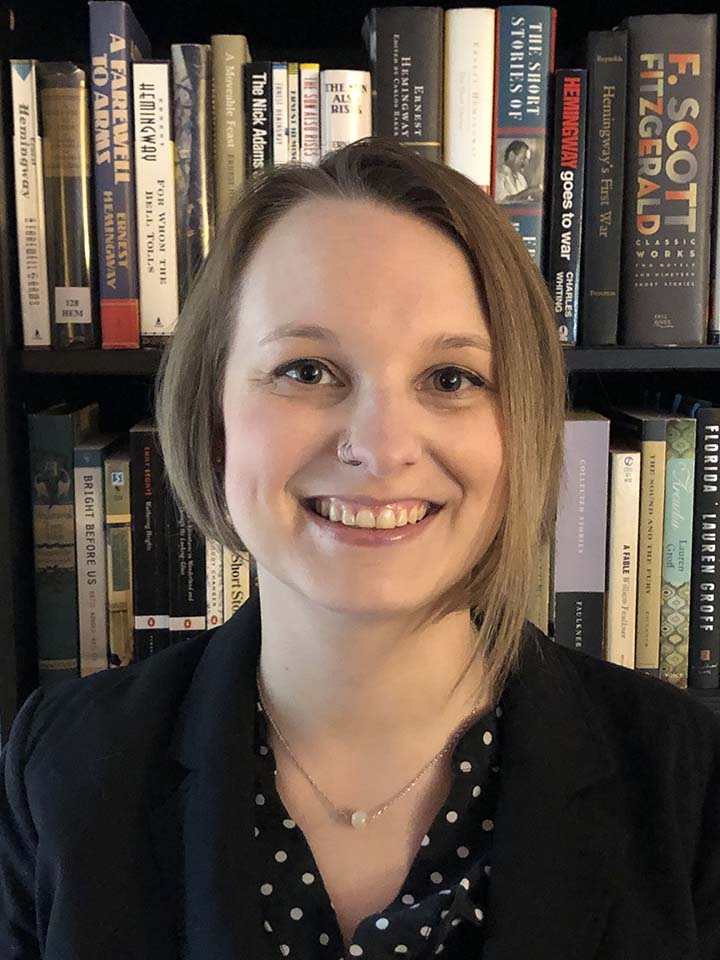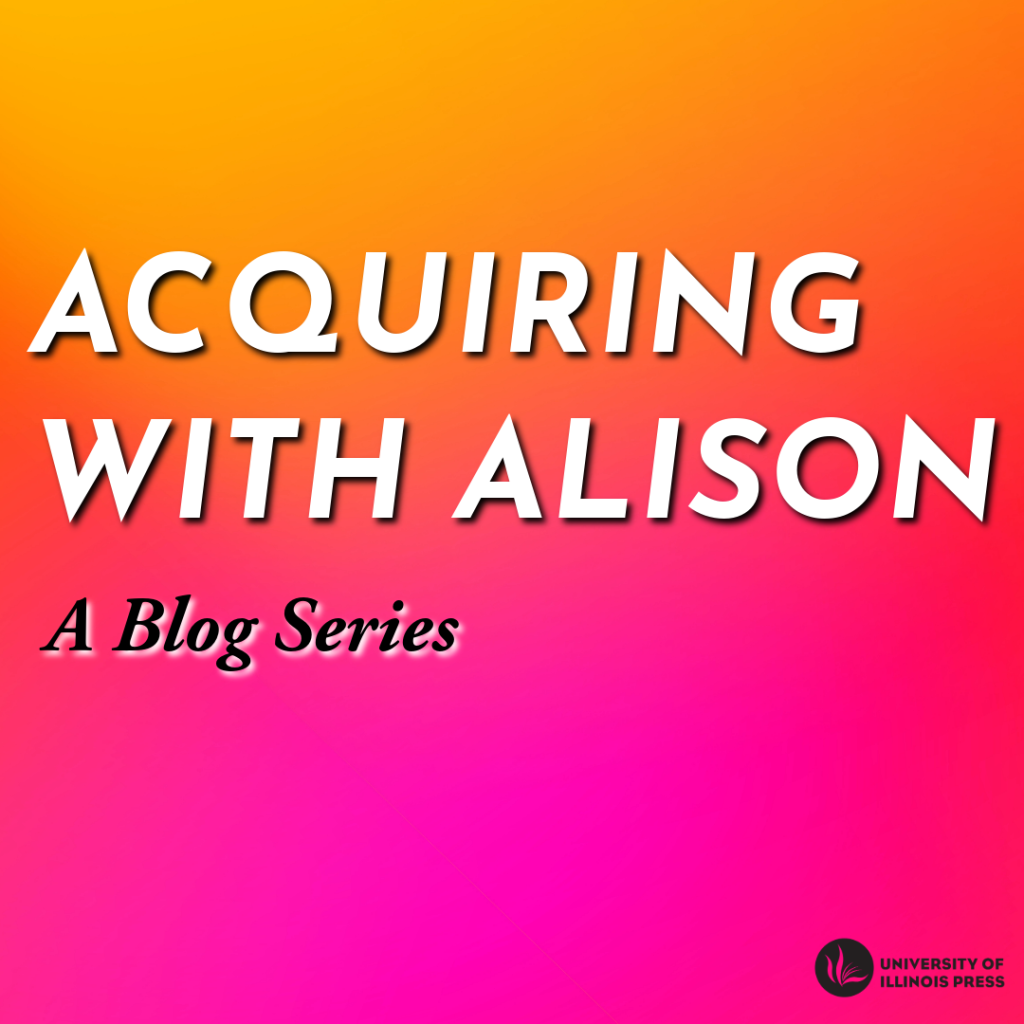Rejection — or the possibility of it — is something many scholars I talk to at panels, conferences, and Zoom calls are deeply concerned about. How do authors avoid rejection? Why do their projects get rejected? I can’t offer specific takes on every project, but I can speak about rejection from an editor’s point of view, and specifically why I reject (or decline) projects that authors query me about.
Most projects are declined at the earliest stage, when an author submits either a query letter or a proposal. The most common reason I decline a project at this stage is fit; that is, the project does not fit with the lists I acquire. I work broadly in history and religion, so when I receive a query about a book on data analysis, it is a pretty easy “no”. The book could be revolutionary, but if the editor (or the press) you are querying doesn’t work in that space, then it’ll be a “no” outright.
However, there are other more nuanced aspects to fit that can be more difficult for an author to discern. As I mentioned, I acquire broadly in history and religion, but most of my work fits into narrower lists. Within history, I work primarily in U. S. labor, radical, disability, migration, and Illinois/Midwestern scholarly history. Within religion, my largest area is Mormon studies, with a growing interest in US religion and new religious movements. As such, if I get a query about Catholics in Italy, while it may look like a book I would be interested in based on my broad acquisitions, it doesn’t fit what I’m currently publishing or what I am interested in moving into. More than that, I don’t have the network to review this book — I don’t know any other scholars working on Catholics in Italy — and our marketing department doesn’t have connections to promote the book.
To understand this second fit example, I encourage authors to look at work a press has published within the last couple of years. While you might want to work with a press that published your favorite book fifteen years ago, that press may or may not be publishing in that space now. Do your due diligence — talk to other authors, visit the press website, look around the exhibit hall at a conference — to understand the press’s publishing landscape now.
Also, try to understand how the books in your field fits into the overall landscape of books at the press you want to query. How many books do they publish in that field each year? Do they publish primarily in a series? What subject codes do they list with these books? This can reveal important details about how a press works within your field. For example, Illinois does not have a primary list in education, meaning that we don’t have one editor who acquires books in education. However, I have acquired books in education when they intersect with other list areas. For example, I worked with Nick Juravich on his book Para Power, about the labor of paraprofessional educators in New York, which contributes to my list in labor history and specifically to the Working Class in American History series. As such, much of the work we did was to bring out the importance of labor history in the manuscript. Nick could have published a version of this book with a press that focused on the history of education, but he is primarily a labor historian and wanted to foreground that in the book. It is important for both authors and editors to understand those disciplinary commitments when they consider the fit of a project and a press.
Admittedly, it can be difficult to discern these subtleties without speaking to an editor. Which is why you should do that if possible, either via Zoom or at a conference. However, you can also make these ideas clear in your pitch letter. Be explicit about why you are querying this editor at this press, and how you see your work contributing to the work they are doing now.
At the same time, if an editor isn’t interested, or if you get a decline, assume that the editor is not in a place to support your work; that is, they don’t have a network to secure the best reviewers, they don’t attend the conferences where you would want to see the book, and their marketing colleagues don’t have promotional lists to reach your audiences. That doesn’t mean your work doesn’t have value; it means that that press can’t help you maximize that value. While this might not be the result you wanted, it is good information! And it is much better to learn this information up front, before you have exerted more effort, than down the line when your book isn’t getting the attention you expected.
Another reason projects get declined at this early stage is because aspects of the project aren’t clear. Laura Portwood-Stacer wrote about this well in a recent newsletter, “5 paths to rejection from publishers,” where she described queries being declined because the argument isn’t clear, the focus doesn’t sound substantive enough for a book, your authoritative voice doesn’t come through, or the audience isn’t clear. These are definitely reasons why an editor may pass on your project, especially if their inbox is overflowing with submissions and they are looking for reasons to cull those.
At the same time, if one aspect of a pitch or proposal is off, I often work with authors. Sometimes I do this because the author is someone I want to work with, or because the project fits squarely within the kinds of projects I want to publish. In this case, I will respond to the author with some feedback, and I may recommend revisions or offer to talk about the project more in depth, to see if our ideas align. In my experience, projects have a better pathway through other aspects of the process, like peer review, when I do early work like this. However, it’s important to recognize that editors may not have time to do this. We have many tasks demanding our time, from peer review queries to board presentations and conference travel (not to mention sick kids, vacations, and a roof that’s been leaking for a year), and it may not always seem like a good use of our time to comment on projects that don’t seem like they’re working.
Much like fit, it would be impossible for an author to know which editors will be available for this kind of work, and when. That’s another reason why it can be helpful to talk to editors ahead of time, and to work diligently on proposal materials to make sure they are as clear and directed as possible. It’s also important to take an editor’s feedback seriously. While we are often not subject-matter experts, we read a lot of proposals in our list areas, and we read a lot of peer reviews. If we question something in a proposal, there is a good chance that it needs attention.
Though it happens less often, editors may decline projects after peer review. An author and an editor may see eye to eye on a project, but the reviewers don’t agree. Along with reviewers, other stakeholders may begin to intervene once a project has been through peer review. If the project is pitched for a series, the series editors may decline the project, either based on the peer reviews or because of their own reading. The press’s editor-in-chief or editorial board may decide the project isn’t right for the press as a whole. Oftentimes, authors will get more feedback about the decline at this stage so that they can determine what went wrong. Sometimes it comes back to fit; while the editor thought the project fit with their list areas, the peer reviews did not agree from a disciplinary perspective, or the boards from a press perspective. Sometimes it turns out the project wasn’t ready for review, and the author needs to develop the project more thoroughly, or make some substantive changes.
While it can be frustrating for authors to get a decline at this stage, after they’ve done work with a press, it may also be in the best interest of the project. Ideally, the author has gotten feedback that will be useful for the project. They will also be able to take that feedback and develop the project in the ways they see fit. If they are tied to a press at this point, more voices may weigh in on how the project should be revised, which may limit how the author responds. Also, in the best-case scenario, the editor may invite the author to resubmit after they’ve revised, depending on the reasons for the initial decline.
It is also important to remember that declines aren’t only something that happens to an author from a press. Sometimes authors choose to withdraw their projects. This may happen early on, if an author decides to move forward with another press. This may also happen as a result of peer review, if the reviewers request changes that the author doesn’t agree with. While an author may admire a press, and vice versa, the relationship doesn’t always work out with that project. Ideally, an author has learned about the process in ways that will make their project better, and the editor has learned more about their practices in ways that will improve their work. Maybe the editor and author can even connect on other work down the line. It can be easy to focus on acceptance. I love to tell authors that I’m excited about their work and want to send it for peer review. I love to send positive reviewer reports, and work with authors on revisions. At the same time, some of the best and most necessary work happens when we grapple with aspects of projects that aren’t working as well as they can. In the best case scenarios, we can develop projects and publish successful books. At other times, it is best for the author and their work if they pursue publication elsewhere.

Alison Syring is an acquisitions editor at the University of Illinois Press. She has degrees in English literature and history from the University of Maryland, an MA in writing from Johns Hopkins University, and an MFA in creative writing from the University of Illinois. She started in publishing as a production editor and worked for several years as a technical writer. Alison began as a Round the Press intern through the graduate English department, after which she was hired as a full-time assistant editor. She has been acquiring in history and religion since 2020. Alison continues to acquire and grow a flagship series—the Working Class in American History series; diversify our Mormon studies list and broaden into religious studies; and maintain our commitment to early-career scholars by starting an Outstanding Dissertation in Disability History prize published through our Disability Histories series.

